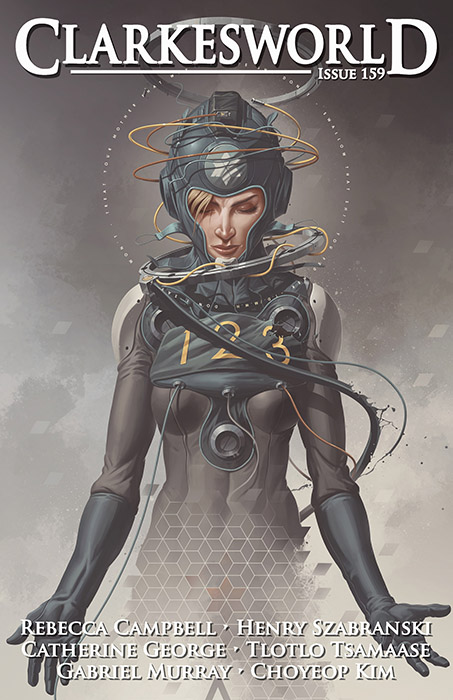Stories We Love

Tlotlo Tsamaase’s novelette “Eclipse our Sins” in December’s issue of Clarkesworld is a dense and lyrical story in which a young girl searches for the reason her family members are falling ill in a world wherein Mother Earth seeks revenge for a multitude of sins committed against her.
Tsamaase’s future is one in which the effects of “sins” are tangible and are explicitly connected to local ecologies. For example, xenophobic and sexist thoughts emerge into the air as smog, contributing to ecological destabilization. The protagonist, and many others in the story, wears a respirator which protects her from the material effects of anti-social elements; but requiring this protection is a burden on the poor who must not only regularly replace their respirators to survive, but are also dependent on proprietary medicines.
The fragility of the human body — as evidenced by the dependence on not only technology but also basic hygiene products and food, and the rate at which humans fall ill — is connected to the fragility of the Earth after climate change. Though Mother Earth is in a diminished state, she emerges in this story as a force to be feared in the ruthlessness with which she enacts revenge. This is a revenge that is paralleled by the ruthlessness with which humans have pursued their own interests at the expense of the ecosystems in which they exist.
The personification of the Earth is a fascinating framing device in “Eclipse our Sins.” The story opens with a prayer which invokes a distant goddess figure and makes the dire violence of the world clear. The reader gets the sense that desperate cries to “Mother Earth, Mama Earth, Mmê Earth” will not be heard or answered — that the disconnect that humans have created between themselves and the environment has theological weight. But when Mother Earth finally answers the protagonist at the end of the story and a new incantation to a new future emerges, the heady result of this prayer makes tangible both dread and hope.
Tsamaase’s novelette depicts a future that is by no means an easy one, and this story certainly stands as a warning, pointing to the frayed connections caused by both social ills and ecological ones. But the reader comes away from this story, too, with the idea that along with the rising flood waters that are called forth in the story’s final lines there is justice — and through that justice, transformation.
“Eclipse our Sins” is a complex story and we’ve barely scraped the surface in this review. If you have any thoughts about it, we’d love to read your comments on this post, through our contact page, or using the social media buttons below.
